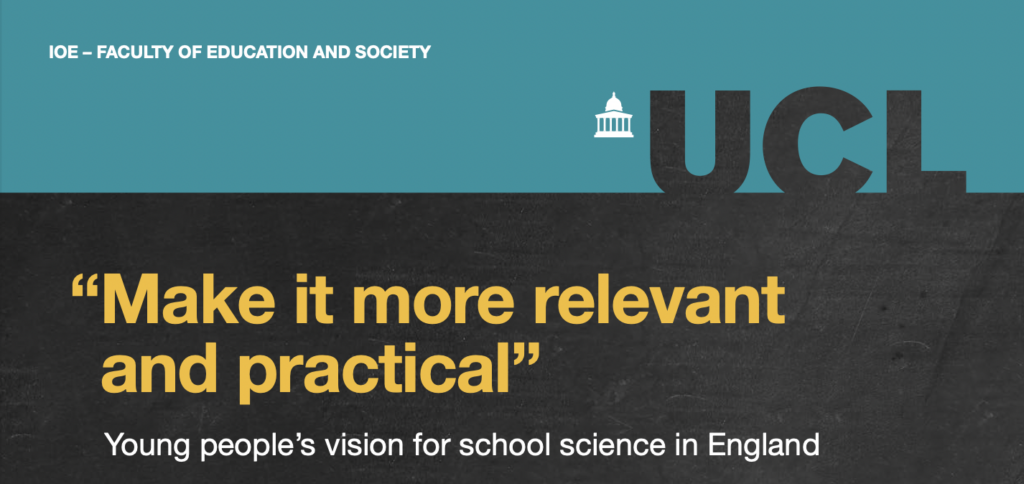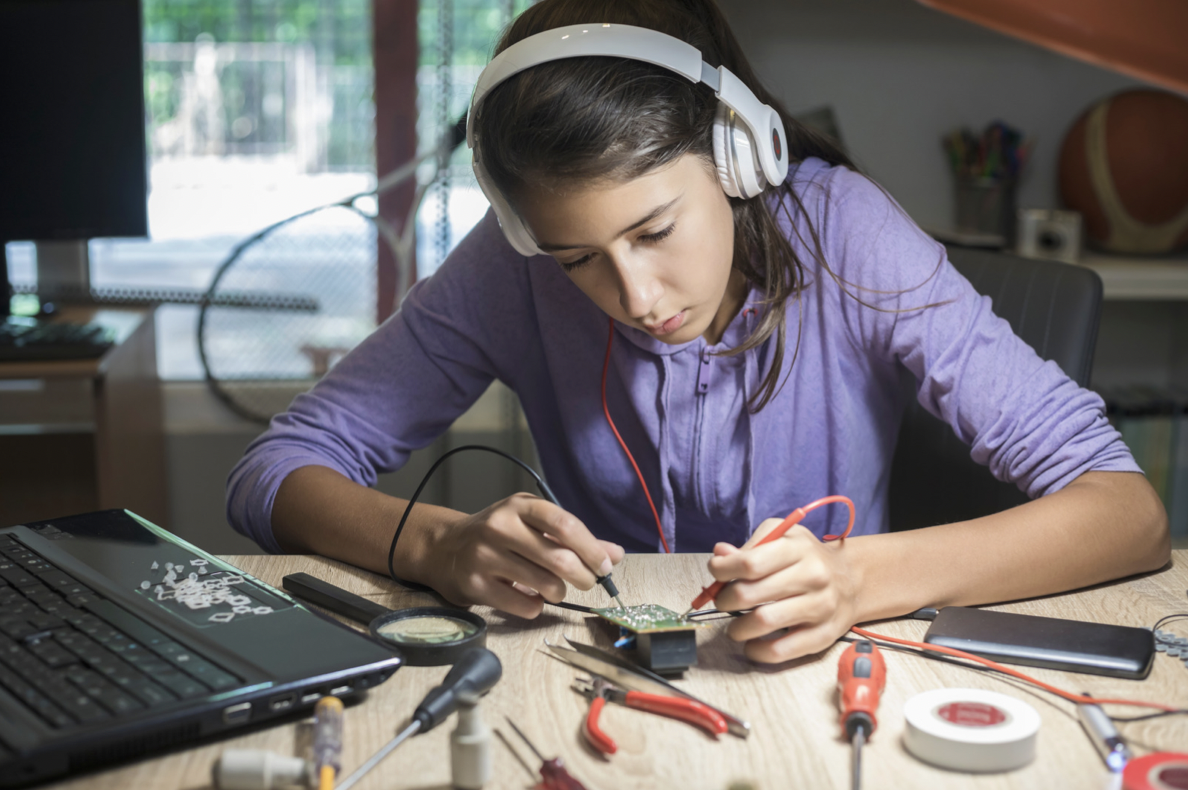A new report by IOE, UCL’s Faculty of Education and Society, provides rich insights into the voices of young English people for how school science could be improved. The report is part of ASPIRES, a 13-year, England-based longitudinal research project that explores young people’s science aspirations and trajectories, and the factors that shape them (including family, school, careers education, social identities, and inequalities). The This report draws on data from phase 3 (ASPIRES 3), following the young people’s lives into adulthood and employment, and their reflections back on their school science experiences. Findings are reported from 7,635 survey responses from 21 and 22-year-olds, and 50 interviews conducted with 20 and 21-year-olds who have been interviewed since the age of 10.

The analysis of this data identifies four areas of improvement for school science that young people felt would support their learning and engagement with the subject.
Improvement #1
Improvement #2
Make the science curriculum more relevant
72% of young people wanted the school science curriculum to be more relevant to “everyday life”.
Increase problem-based science learning
60% of young people indicated that there was a need for a greater focus on and problem-based learning.
Improvement #3
Improvement #4
Reduce exam pressure
More than 52% of young people indicated that they would have liked less exam pressure at school.
“Better teachers”
41% of young people identified that they would have liked “better teachers and/or more specialist teachers”.
The study’s Principle Investigator Professor Louise Archer explained “young people are key stakeholders in education yet too often their voices are missing within policy and curriculum reform. Our new report draws on data from over 7,600 young people, sharing their views on how to improve school science”.
The report makes policy recommendations, informed by the insights of young people, which include continuing to incentivising STEM graduates to enter the teaching profession, improving teacher retention, and providing initial teacher education and/or professional development which draws on principles of inclusive pedagogy and critical professional reflection.
Links
Download the executive summary
Article source: IOE – Faculty of Education and Society

